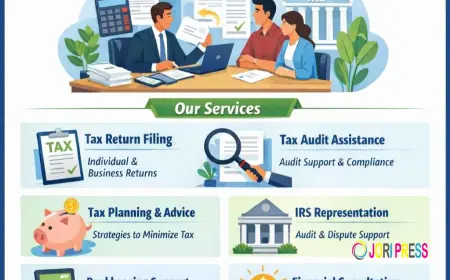Your Everyday Guide to Understanding and Using Finance the Right Way
Finance isn’t complicated. Learn how to manage money, budget smartly, and build a secure future using clear, simple steps anyone can follow — no experience needed.
Understanding Finance: A Simple Journey Toward Financial Confidence
Let’s be honest — most people avoid the word finance because it sounds hard, boring, or confusing. But if you’ve ever made a list before going to the market, put aside money for a family event, or decided to wait a week before buying a new phone — guess what? You’ve already been using basic finance fundamentals!
Finance doesn’t belong to banks or textbooks. It belongs to you, me, and everyone who earns, spends, saves, or dreams. In this article, we’re going to talk about how finance works in everyday life, and how you can use it to build a better, more peaceful future.
What Finance Means in Real Life
Finance is simply the way you handle your money — nothing more, nothing less.
Here are some things that count as finance:
Earning from a job or business
Paying rent, bills, or school fees
Saving up for your child’s future
Sending money to family
Buying something in installments
Planning how to spend your income
It’s not about how much you make — it’s about how well you manage what you have.
A Good Start Begins with Knowing Your Money
If you don’t know where your money goes, it’s very hard to control it. So let’s begin with the most basic step: understanding your cash flow.
What to Do:
- Write down how much you earn every month.
- List every place your money goes (even small tea or snacks).
- Divide your expenses into two types:
Fixed (same every month: rent, bills)
Flexible (can change: shopping, food, fuel)
- Now see how much is left.
Even if it feels small or uncomfortable at first, this step shows you the truth. And from truth comes control.
Monthly Planning: A Simple Habit with Big Results
Budgeting isn’t about being strict. It’s about giving your money a job so it doesn’t disappear.
Quick Budget Plan:
Income: Rs. 60,000
Needs (rent, food, bills): Rs. 30,000
Savings: Rs. 6,000
Personal/spending: Rs. 10,000
Family & other: Rs. 14,000
You can change the numbers, but keep the idea. Once you plan your month, unexpected pressure goes away.
Making Saving a Regular Habit, Not a Burden
Some people think saving is only for the rich. Not true at all.
Even saving Rs. 100 per week is a start. The goal is not the amount — it’s the habit.
Tips to Build a Saving Routine:
Transfer money to savings as soon as you get paid
Keep a different account or box for savings
Give your saving a name (like “trip fund” or “emergency jar”)
Don’t use savings unless it’s for its purpose
A habit of saving brings a sense of control and confidence.
Short-Term vs. Long-Term Goals: Know the Difference
Short-Term Goals (within a year):
Buy new clothes for Eid
Fix your home fan or fridge
Save for a small gift or event
Long-Term Goals (1 year and above):
Pay for a course or skill training
Buy a new motorcycle
Invest in your child’s education
Knowing your goals helps you say “yes” to what matters and “no” to what doesn’t.
Multiple Income Streams: Small Steps, Big Impact
Relying on just one income can be risky. What if that job ends? What if expenses go up?
You don’t need to open a business overnight. But there are small ways to add extra income:
Offer a skill online (design, tutoring, translation)
Sell homemade food or crafts
Deliver items part-time
Rent out a room or your old phone/bike
Adding just Rs. 5,000–10,000 extra per month can completely change your financial life over time.
Where Should You Keep Your Money?
Money that sits in your wallet is easy to spend. Money that’s put somewhere safe has a purpose.
Here’s where you can keep your money:
Day-to-day cash – for spending needs
Bank account – for savings
Digital wallets – only if secure and trusted
Recurring deposit – for fixed monthly saving
Home lock box – for emergency use (but not large amounts)
Each rupee should have a home.
Family Involvement: Talking Openly About Money
Many families hide money talk, but sharing the financial picture helps everyone stay on the same page.
Discuss major expenses with your spouse or parents
Set family savings goals (example: “Let’s all save Rs. 1,000/month for a wedding”)
Give small pocket money to kids with saving lessons
Keep one page in the kitchen or hall where expenses are tracked
This builds trust, teamwork, and discipline.
Simple Financial Tools That Anyone Can Use
You don’t need fancy spreadsheets or apps. Even a notebook and pen can work. But if you like, here are easy tools:
Notebook ledger – great for daily expense tracking
Google Sheets – useful if you’re comfortable with basic tech
Budget apps – like Money Manager, Wallet, or Spendee
Voice notes – speak your expenses daily and log them later
The best tool is the one you’ll actually use.
Celebrating Progress Without Overspending
Money is also meant to be enjoyed. But we often spend too much in the name of celebration.
So how do you enjoy your life without hurting your budget?
Plan celebrations in advance
Choose thoughtful gifts over expensive ones
Celebrate with people, not price
Save a little for fun every month
Balance is the key — not too tight, not too loose.
The Role of Self-Control in Financial Growth
Finance isn’t only about numbers. It’s about behavior.
A few self-control habits that help:
Wait 2 days before buying something unplanned
Uninstall shopping apps if they distract you
Remind yourself of your savings goal weekly
Avoid comparing your lifestyle with others
Self-control doesn’t mean saying no to everything. It means saying yes to your future.
Planning Ahead: What Happens After 5 Years?
People who succeed financially aren’t always the richest — they’re the ones who plan ahead.
Ask yourself:
Where do I want to be in 5 years?
How much will that cost?
What can I do this month to move toward that?
Write down your answers and review them every few months. Small actions now become big results later.
Your Personal Finance Checklist
Here’s a quick list you can use every month:
✅ Income tracked
✅ Expenses listed
✅ Savings done
✅ Budget followed
✅ Unused items sold or donated
✅ One financial goal written
✅ Talked about money with family
✅ Learned one new thing about finance
Print this, stick it to your cupboard or fridge, and check it weekly.
Final Thoughts: Finance Is a Friend, Not a Fight
You don’t need to fear money. You don’t need to chase it. You just need to understand it, respect it, and use it wisely.
You already have what it takes:
A will to learn
A goal in your heart
A family that counts on you
A mind that can plan and grow
Start today. Track, plan, save, and move forward.
The future is not built by chance — it’s built by choice.
And you’re already on the right path.
What's Your Reaction?
 Like
0
Like
0
 Dislike
0
Dislike
0
 Love
0
Love
0
 Funny
0
Funny
0
 Angry
0
Angry
0
 Sad
0
Sad
0
 Wow
0
Wow
0














































